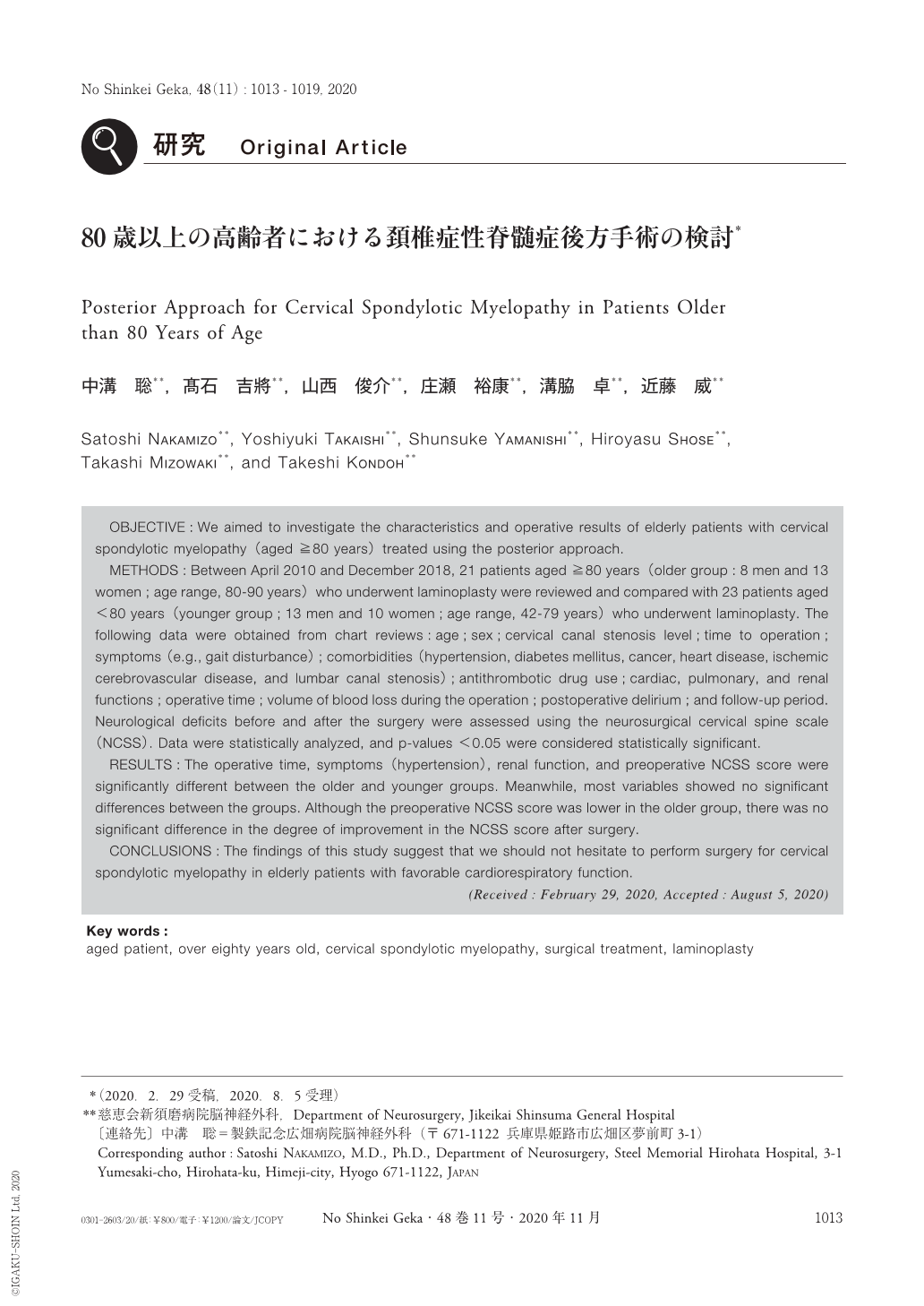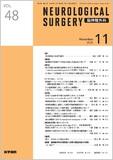Japanese
English
- 有料閲覧
- Abstract 文献概要
- 1ページ目 Look Inside
- 参考文献 Reference
Ⅰ.はじめに
超高齢社会の本邦では,高齢者の脊椎脊髄疾患に遭遇することは稀ではない.今後,加齢により進行する頚椎変性疾患の患者は,ますます高齢化するものと考えられる.一般的に,高齢者は併存症が多く,術前の全身状態も不良であると考えられており,年齢を理由に,医療者側あるいは患者側が手術に躊躇する場面に遭遇することがある.
一方,手術成績に関しては,高齢者では術前の神経症状が不良で改善率も低いとする報告が多い1,2,13,19,20).これまでにも高齢者の頚椎変性疾患に対する手術の報告は散見されるが,古くは60歳以上を対象としており20),その後は70歳あるいは75歳以上を高齢者とする報告が多い1,13).また,80歳以上であっても10例未満の報告が多く2,8,19),頚椎症の原因疾患,比較する対照群の内訳および手術術式は報告者により一定していない.
今回われわれは,頚椎椎弓形成術を施行した80歳以上の頚椎症性脊髄症21例について後方視的に検討を行い,一般高齢者と同様の患者背景をもつのか,過去の報告例と同等の手術成績であるのかを検証した.また若年群と比較して,術前の全身状態や手術成績が不良であるのかについても検証した.
OBJECTIVE:We aimed to investigate the characteristics and operative results of elderly patients with cervical spondylotic myelopathy(aged ≧80 years)treated using the posterior approach.
METHODS:Between April 2010 and December 2018, 21 patients aged ≧80 years(older group:8 men and 13 women;age range, 80-90 years)who underwent laminoplasty were reviewed and compared with 23 patients aged <80 years(younger group;13 men and 10 women;age range, 42-79 years)who underwent laminoplasty. The following data were obtained from chart reviews:age;sex;cervical canal stenosis level;time to operation;symptoms(e.g., gait disturbance);comorbidities(hypertension, diabetes mellitus, cancer, heart disease, ischemic cerebrovascular disease, and lumbar canal stenosis);antithrombotic drug use;cardiac, pulmonary, and renal functions;operative time;volume of blood loss during the operation;postoperative delirium;and follow-up period. Neurological deficits before and after the surgery were assessed using the neurosurgical cervical spine scale(NCSS). Data were statistically analyzed, and p-values <0.05 were considered statistically significant.
RESULTS:The operative time, symptoms(hypertension), renal function, and preoperative NCSS score were significantly different between the older and younger groups. Meanwhile, most variables showed no significant differences between the groups. Although the preoperative NCSS score was lower in the older group, there was no significant difference in the degree of improvement in the NCSS score after surgery.
CONCLUSIONS:The findings of this study suggest that we should not hesitate to perform surgery for cervical spondylotic myelopathy in elderly patients with favorable cardiorespiratory function.

Copyright © 2020, Igaku-Shoin Ltd. All rights reserved.


